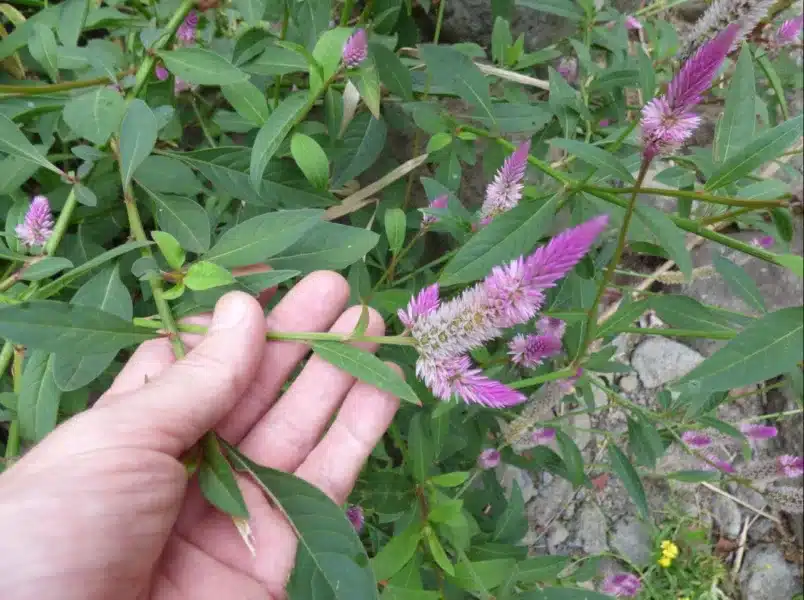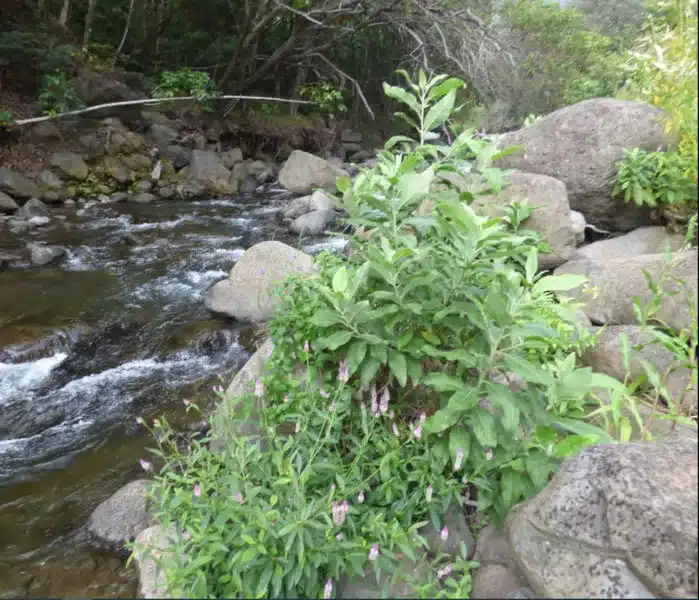Cockscomb Unlocking the Nutrient-rich Goodness: Discover the Health Benefits of Leaves in Your Diet!
Common Cockscomb is the English Name, Tamil it is know as Pannai Keerai and Kurdu in Marathi and Murgchoti/Lalmurga in Hindi.
Cockscomb, bio name Celosia argentea, commonly known as Kurdu (Pannai Keerai), is a flowering plant that belongs to the amaranth family, Amaranthaceae. It is native to various regions across the world, including Africa, Asia, and the Americas. Kurdu is renowned for its vibrant and distinctive inflorescences, which are often brightly colored and have a unique, eye-catching appearance.
The plant typically grows as an annual herb and exhibits various growth habits, including erect, prostrate, or decumbent forms. It is often cultivated as an ornamental plant in gardens and landscapes due to its attractive, plume-like flower heads that come in a range of colors, such as red, pink, orange, and yellow. These striking flower heads make Kurdu a popular choice for floral arrangements and decorative purposes.
In addition to its ornamental value, it is also utilized in various culinary traditions. Its young leaves and tender stems are edible and are commonly used as leafy greens in salads, soups, and stir-fries in some regions. The plant’s seeds are edible as well and can be ground into flour or used as a cereal grain in cooking.
Cockscomb is valued not only for its aesthetic appeal but also for its versatility as a source of both ornamental beauty and potential nourishment in different cultures around the world.
Cockscomb let us unlock the Nutrient-rich Goodness: Discover the Health Benefits of Leaves in our Diet with nutirents and health benefits. Cockscomb is the green leaves that you should have and one of the leaf green that you should not miss.


Nutrients
Cockscomb, Kurdu, Pannai Keerai or Celosia argentea, offers a range of nutrients in its edible leaves and young stems. While nutrient content can vary based on factors such as soil quality and growing conditions, here are some of the key nutrients typically found in its leaves:
Vitamins: Cockscomb leaves are a good source of various vitamins, including vitamin A, vitamin C, and vitamin K. Vitamin A is essential for maintaining healthy vision and skin, while vitamin C supports the immune system and acts as an antioxidant. Vitamin K plays a crucial role in blood clotting and bone health.
Minerals: These leaves provide essential minerals such as calcium, potassium, and iron. Calcium is important for strong bones and teeth, potassium helps regulate blood pressure and fluid balance, and iron is essential for the production of red blood cells.
Dietary Fiber: The Cockscomb leaves are rich in dietary fiber, which is beneficial for digestive health. Fiber aids in regular bowel movements and can help promote a feeling of fullness, making it a useful component of a balanced diet.
Antioxidants: Leaves may contain various antioxidants, which help protect cells from oxidative damage caused by free radicals.
Phytonutrients: These leaves may also contain phytonutrients, such as flavonoids and carotenoids, which have been associated with various health benefits, including anti-inflammatory and immune-boosting properties.
It’s worth noting that like many leafy greens, Cockscomb/Pannai Keerai/Kurdu can be a valuable addition to a nutritious diet due to its nutrient density. Incorporating Kurdu leaves into salads, soups, or stir-fries can be a flavorful way to benefit from their nutritional content while enjoying their unique taste and texture.
Benifits
Cockscomb in English, Kurdu in Hindi and Pannai Keerai in Tamil scientifically known as Celosia argentea, offers several health benefits when included in your diet:
Rich in Nutrients: Cockscomb leaves are packed with essential vitamins and minerals, including vitamin A, vitamin C, vitamin K, calcium, potassium, and iron. These nutrients are vital for maintaining overall health, supporting immune function, and promoting healthy bones and skin.
AntioxidantProperties: The presence of antioxidants in Cockscomb leaves helps protect your cells from oxidative stress and damage caused by free radicals.
Digestive Health: Pannai keerai is a good source of dietary fiber, which aids in maintaining regular bowel movements and promoting digestive health. Fiber also helps you feel full, which can be beneficial for weight management.
Immune Support: The high vitamin C content in Cockscomb leaves strengthens your immune system, helping your body defend against infections and illnesses. Regular consumption of foods rich in vitamin C can contribute to improved overall immunity.
Bone Health: Vitamin K, present in these leaves, plays a crucial role in bone health and blood clotting. Adequate vitamin K intake supports bone density and may reduce the risk of fractures.
Healthy Skin and Vision: Vitamin A, found in Cockscomb, is essential for maintaining healthy vision and promoting skin health. It supports clear vision and contributes to radiant skin.
Cardiovascular Health: The combination of antioxidants, potassium, and dietary fiber in Cockscomb leaves can have a positive impact on heart health. These elements help regulate blood pressure, reduce inflammation, and support overall cardiovascular function.
Anti-Inflammatory Effects: Kurdu leaves may contain phytonutrients with anti-inflammatory properties, potentially aiding in reducing inflammation in the body, which is associated with various chronic diseases.
Incorporating Cockscomb or Kurdu leaves into your diet, whether in salads, soups, or stir-fries, can be a flavorful way to reap these health benefits. Their unique taste, coupled with their nutritional value, makes them a valuable addition to a balanced and health-conscious diet.
Recipe
Recipe
Here’s a simple and delicious recipe for Cockscomb (Celosia argentea) Stir-Fry:
Ingredients:
2 cups fresh Cockscomb leaves, washed and chopped
1 small onion (preferably Shallots), finely chopped
2 cloves garlic, minced
1 small green chili, chopped (adjust to your spice preference)
1/2 teaspoon cumin seeds
1/2 teaspoon turmeric powder
Red chili powder according to your taste
Salt to taste
2 tablespoons cooking oil
Instructions:
Heat any cooking oil in a pan.
Cook in low heat.
Add the cumin seeds and let them sizzle for a few seconds until they release their aroma.
Add the finely chopped onions and sauté until they turn translucent, about 2-3 minutes.
Stir in the minced garlic and chopped green chili. Sauté for another minute until the garlic becomes fragrant.
Add the chopped Kurdu leaves to the pan. Stir well to combine with the onion and garlic mixture.
Season the Kurdu leaves with turmeric powder, red chili powder, and salt. Mix thoroughly to evenly coat the leaves with the spices.
Cook the Kurdu leaves for about 5-7 minutes, stirring occasionally. They will wilt and reduce in volume as they cook.
Continue to cook until the Kurdu leaves are tender and cooked to your desired consistency. Some prefer them slightly crisp, while others like them softer.
Once cooked, remove the Kurdu stir-fry from the heat.
Serve hot as a side dish with steamed rice or roti (Indian flatbread).
Enjoy your homemade Kurdu stir-fry, packed with nutrients and flavor! Adjust the spiciness to suit your taste, and feel free to add other seasonings or vegetables if you like.
